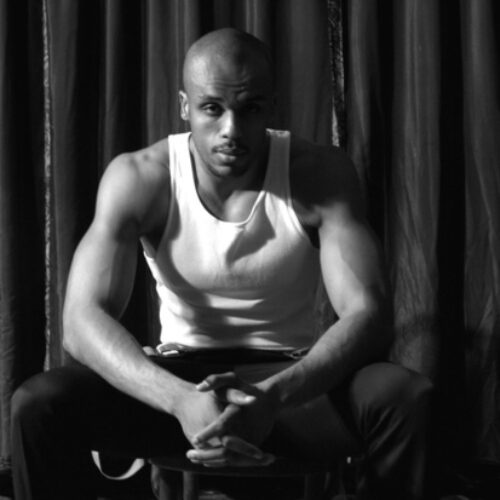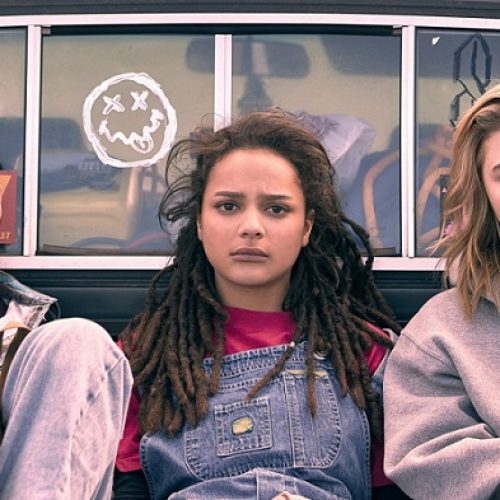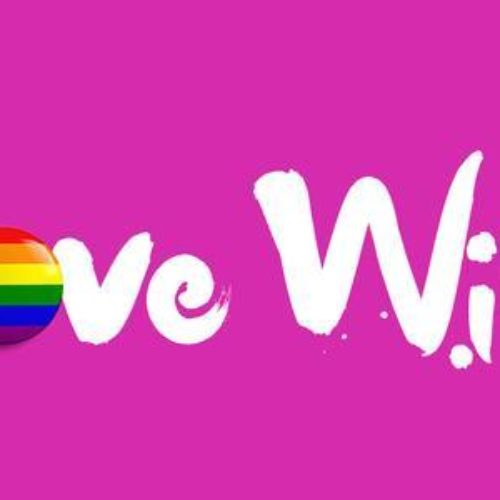ON THE SANCTITY OF QUEER LIVES AND THE LANGUAGE OF TRAGEDY
1.
March, 2020
The Guardian: Man Kills Facebook Friend For ‘Sodomizing’ Him With 20,000
The Nation: Why I ‘Killed’ My Homosexual Facebook Friend, By Suspect
April, 2021
Sahara Reporters: How Young Baker Was Strangled To Death In His Bayelsa Residence
August, 2021
Popular Chef Found Tied Up, Naked And Strangled To Death In His Apartment.
December, 2021
Medical Doctor Butchered In His Abuja Apartment
January, 2022
I Killed The US-Bound Doctor Because He Was ‘Gay’ – Suspect Confesses
February, 2022
Man Found Stabbed To Death In His Lagos Apartment
Man Found Dead In His Abuja Home
What is the one thing all these stories have in common? That, I believe, is the easy part: the sexuality of the men in question.
It is no longer news that the Nigerian state is designed to kill its citizens. It is not news either that the LGB+ community faces double the trouble and hassle of the threats of death and other problems that come with being Nigerian. First, we have the state seeking the lives of every citizen. Then we have the rest of the citizenry seeking our lives through state-sanctioned acts of violence. One starts to wonder: when will we get any respite? And from whom wil this respite come?
Well, I say we look out for each other. We cannot stop every wind of misfortune from knocking us down, but we can set up structures to protect ourselves from these winds. This platform has a plethora of security information ranging from kito alerts to areas marked as red zones, to behaviours to look out for while going for hook-ups, as well as other security tips. In addition to these, I would like to add a few other tips that I use with my family.
- Have a/several trusted contact(s) you share everything about an impending hook-up with. Pictures, phone numbers, social media handles, address and location, even your rides to the place. Let there be someone/people who know all these details. Whether you are the one hosting or the one being hosted.
- Run multi-level searches on anyone you’re meeting. Ask your mutuals with them questions. (And, please, for the love of Amadioha, Allah, Beyoncé, Chimamanda, Hare Krishna, Jesus Christ, or whatever deity you worship, if you are asked about someone and you aren’t certain about their sexuality or how genuine they are, PLEASE SAY SO!!!! Do not be the reason another queer person falls into danger!) The community is a small one. There’s no one who is so fresh off the runway that no one else knows them. If the person you’re looking to meet says they are, that’s a major red flag.
- Listen to your gut. As much as this can be unreliable, do not fail to take this into account. If your gut tells you not to do something, do not do it. No matter how adventurous you want to be.
I recognise that these tips may seem overbeaten, and that bad stuff still happens to us despite them, but I would like us to remember that nothing is 100% foolproof. If it’s working for others, we might as well put it to work to keep ourselves safe.
Please do well to share the Kito Diaries socials with your queer friends: on Instagram, on Twitter, on Facebook, and on Clubhouse.
As much as it hurts, we cannot bring back the dead. But we can look out for the living. We can and should protect one another, our individual differences notwithstanding.
2.
“Nature abhors a vacuum: whenever people do not know the truth, they fill the gaps with conjecture.” – George Bernard Shaw
There is nothing scarier, especially for an oppressed community, than the idea, the fear that all the bad things that happen to that community, to its members, are predicated on their being a part of said community.
A lot of bad things happen to members of oppressed communities. A lot of bad things happen to us as queer people. There are so many of them listed everywhere, here on Kito Diaries, on our timelines on social media. Everywhere we look, we see and hear stories of the bad things that happen to people just because they are gay.
Beyond the fear of being kitoed and outed to our families and communities, there is also the prejudice we face in healthcare; I’m a HIV+ person, so I understand how annoying this is. There is this very annoying condescension that healthcare workers, especially in public facilities, immediately display towards you once you hint during counselling and contact tracing that your sexual partners may be of the same sex as you.
One of my best friends was kitoed in a public space – a bar, somewhere in Lagos. The other was harassed by the police for being effeminate. I have been kitoed a few times; twice by people I called friends. These are the terrifying realities that we face as LGB+ people in this part of the world.
However – and this is very important – it is imperative that we note that not every bad thing that happens to us happens because we are queer. Yes, gay men and women have been killed. But not every death of gay persons has been predicated on their sexualities. This is a very important distinction to make.
There have been so many takes in the past few days over the recent deaths that rocked the community. A lot of them – most of them – have been very wild conjecture. There is so much that we do not know, so much that we do not understand about these situations. This is not to say that the sexual orientations of the victims are not vital to these cases. Rather, it is saying that their sexual orientations may or may not be a rather small part of the motivations behind these murders. This realisation totally changes the trajectory of the conversation.
We do not know if the recent deaths were the results of homophobic attacks. We also do not have adequate information that could help us form any theories whatsoever as to what happened and how they happened. We do not know how much work the police have done, what leads they have, what leads they’ve pursued – we know none of that. We do not know if they did any finger-printing on the scenes of the crimes, if they are tracking the phones or gadgets of the victims, if they have questioned the neighbours, if they have gathered any leads whatsoever.
What I do know, however, is that engaging in wild conjectures could ruin the cases. We live in a small global village. Information easily filters out of presumed closed spaces and can get to parties and places they should never have gotten to. And I do not believe I need to stress on how awful it would be if misinformation from the community causes the trajectory of these cases to shift, leading to a ruination of these cases.
It is important, in times like these, to not spread falsehoods, which, when we call things as they are, is what most conjectures and speculations are. Even in the midst of our pain, of our zeal to ensure that justice is done, we must do better. We must not let ourselves be carried away on the tides of emotion. As they say, teary eyes are bad for vision. We must do better: learn silence in the midst of uncertainty; pursue justice with clear, unflinching eyes; address issues with clarity, armed with adequate information. Only then can we truly speak, and act, with clear targets and goals for the betterment of our community.
“Speculation is not knowledge.” – Robert M. Price
3.
“Empathy is seeing the eyes of another, listening with the ears of another, and feeling with the heart of another.” – Alfred Adler
One of the recurring things we see whenever we hear stories about situations like these are the takes on how to protect oneself – some of them benign, some of them a few steps away from highfalutin bullshit.
I would be the first person to admit and agree that we need to take our personal security very seriously. However, some of us, in a bid to impress upon the community at large how important it is to be mindful of our security, have taken to dropping quite the number of insensitive hot-teks.
It is very important that we understand that language is a powerful tool. The language of conciliation is not the same as the language of commiseration, neither is it the same as the language of aggravation. We need to learn tact in our speech. We need to learn how to speak, what language to use, and even the manner of speaking and when to speak.
The reason I stress on this is because a lot of the takes I have seen online have bordered on victim-blaming, moral self-aggrandizement and even physique-shaming.
Gay people are taking too much risk by going on hookup apps…
We should learn how to stick to one sexual partner…you must not fuck everybody…
If you work out and build your physique, you will be able to fight off your attackers…
In situations like this, we need to learn how not to let our anger get the better of us and lead us into saying things that compound the hurt for others. I say this as someone who is still learning this: We need to do better!
I understand that we live in Nigeria, that toughness is required, otherwise one will not survive on the streets, that this country has a very evil way of making even the best of us very jaded. Still, let us not forget what the dignity of our humanity means. Let us not forget that we are in this together. The blame game needs to stop. The gaslighting of the community by the community needs to stop. The cruelty and hateful stupidity of the world towards queer people is not our fault. Let us place the blame where it squarely belongs, and choose instead to navigate our lives around it, pushing back where we can, changing the narratives one step at a time. That is how victories are won.
If you are one of those people who drops hot-teks about how queer people need to learn to be in relationships and stick to one person, or gives long-winded talks about how queer people need to invest in physical fitness – doing weights and all the like to keep fit – or even chooses to subtly insinuate how much better you are than those who find themselves in sticky situations, this is a plea for you to stop. You are not helping. Not by doing any of these.
“The nature of humanity, its essence, is to feel another’s pain as one’s own, and to act to take that pain away. There is nobility in compassion, a beauty in empathy, a grace in forgiveness.” – John Connolly
4.
“There are some things that are so unforgiveable that they make other things easily forgivable.” – Chimamanda Ngozi Adichie
I have battled within myself since yesterday as to whether or not to do this. This is mostly because this part of this article would feel like a targeted attack on some persons. However, I believe that this is important, that it is important for us to speak up in the face of wrongdoing, that we do not get so carried away in hero-worship that we fail to speak up against bad behaviour.
In the wake of these recent deaths, several people took to their social media spaces to speak about the sanctity of queer lives. Very laudable actions, I must say. However, a few of them also descended to the pits of ignominy with certain statements they used in their posts.
For all we know, these men were not out. They were not openly gay, as some people claimed in their posts. I find the use of that term, “openly gay,” quite disturbing. Let me give you some background. I studied in the University of Nigeria, Nsukka. And the one thing that just about everybody who knew me in UNN would say about me is, “He’s gay.” And that’s okay. Because I came out in stages between 2014 and 2016 when I owned all of my sexual orientation, not caring who knew. However, fast-forward to today, and I’m a working class person whose colleagues know nothing about his sexual orientation. It sort of begs the question: What does it mean to be openly gay?
For the most part, queer Nigerians are in one form of the closet or another. Either we’re closeted completely or we are selectively closeted. One of my best friends is out to his siblings and most of his friends, but not to his mother or other relations. Another friend is out to us, his queer family, and just two of his biological siblings.
The point is, it differs from person to person. This is why I find it most bothersome that anyone would choose to out the dead for whatever reason. It is, to me, a mark of an insidious deep-seated need to pontificate, to build a rostrum, purportedly for the betterment of the community, but in reality, for the mere purpose of self-aggrandizement.
To build a platform around a lie, that is the most ignominious deed anyone could do. Especially when it comes to issues surrounding activism and the betterment of people’s lives. It is a very telling thing, telling of our own inadequacies, that we choose to sensationalize tragedy; that we choose to pontificate, using language that we know is bound to incite anger, based off of nothing but mere speculation.
Stories abound, both on this platform and on our various social media, of the evils we face as a community. We do not need to make martyrs out of the dead, to sensationalize their tragedies, in order to build influence or fight for our rights. To build a campaign with these recent incidents, especially with the lack of helpful information on these cases, is to essentially build on sinking sand. Nothing built on a foundation of lies lasts. Nothing good comes out of sensationalism.
We must take care, as I have said time and again, to do better, to place things in the right perspective, to eschew any proclivity to centre ourselves or our personal agendas using any of these tragedies. To do otherwise would be an act most heinous, it would be quite hard to forgive.
At the end of the day, we must all strive to do better, to look out for ourselves, to be our brothers’ and sisters’ keepers. That is the only way we can survive. That is the foundation we must build with which to fight for a better future; a future where queer lives and bodies and names are not a statistic of tragedy, but are protected to the fullest capacity.
May the dead rest. And may we find peace.
Written by Precious Oraz
About author
You might also like
TO BE GAY, CLOSETED AND A HOMOPHOBE
At fourteen years of age, I graduated from Primary School about four years ago, and since then, I have lost contact with most of my classmates. However, word eventually got
Overcoming The Abuse And The Lessons From ‘The Miseducation Of Cameron Post’
I recently read a tweet where the user called out a common failing of parenting. He said: “Just a quick reminder that the child you imagine in your head is
A REBUKE FOR KITO DIARIES
I am appalled and completely taken aback by the lack of decorum, the sovereignty of intolerance and deluge of vile bile that we witness from time to time in the










3 Comments
Yusuf
February 24, 08:22#sigh, many times I came across captions as stated above and consequently ridiculous comments also stated above as to being careful and how queer guys must not have hook ups. I’d refrain from commenting cos these days trying to talk folks out of ridiculousness just ends up with getting dragged. It’s also disturbing that a lot of folks might not read this, after all it’s not our usual sensual and erotic stimulating stories. I felt so sad reading this cos a speaks a lot of truth to many misconceptions people have about being openly gay and such. Thank you for this well thought out piece.
Jay Armstrong
February 24, 10:24Thank you for this, Precious.
I, personally, had found the statement “openly gay” brandished everywhere the conversation is held quite troubling. It feels like outing a dead person. When a person dies, a person who is not Elton John’s standard out, calling them “openly gay” just feels somehow. [For want of adequate words.]
It feels like a distraction from what’s happened. A human being just died, and their murderer is still at large. Calling them gay, in an extremely homophobic clime, won’t get him the justice they deserve. We’d be making heroes out of criminals.
It just feels too callous.
IJEM
February 24, 14:01“The gaslighting of the community by the community needs to stop.”
you know, it’s quite sad that most of the times, it’s actually people who are supposedly part of the community that harm others. we have external forces fighting us on every angles, and instead of coming together to build a safe haven for ourselves, we have chosen to be the dogs that eat ourselves.
and I find it problematic when people say things like, “IT HAPPENED TO so and so BECAUSE they OPENLY GAY people” these things can happen to anybody, anywhere, at anytime. and it doesn’t matter who you are.
it’s sad these things are happening to us, and horrendous that some of us are now using the guns on ourselves.